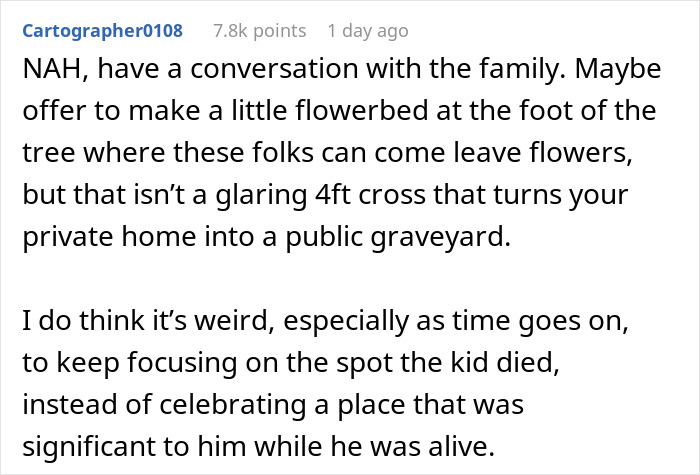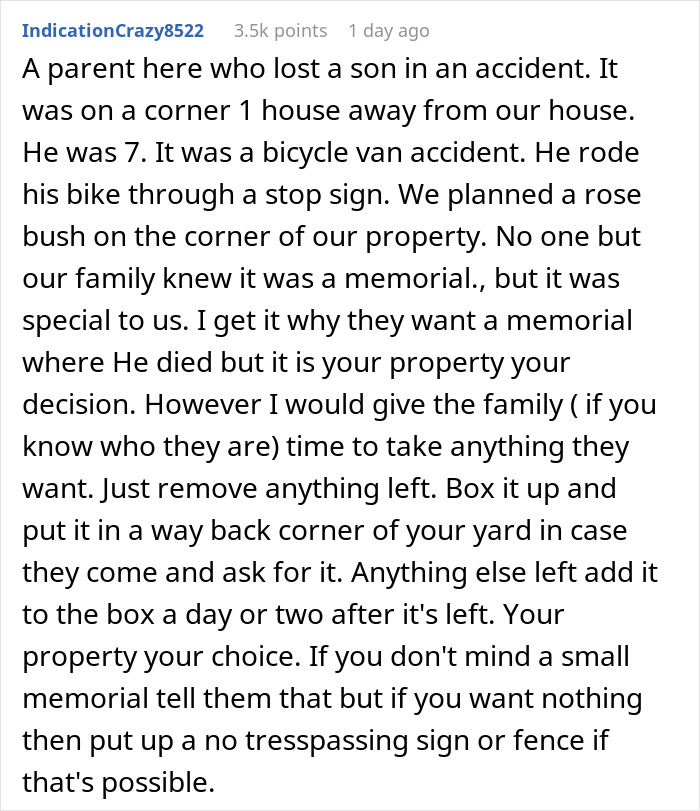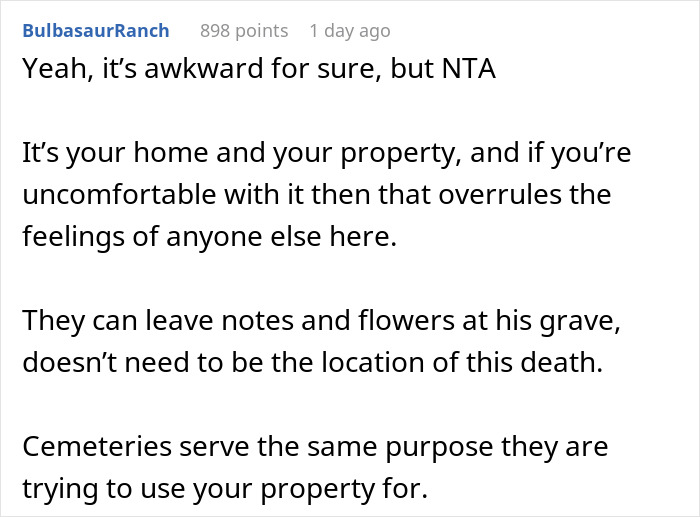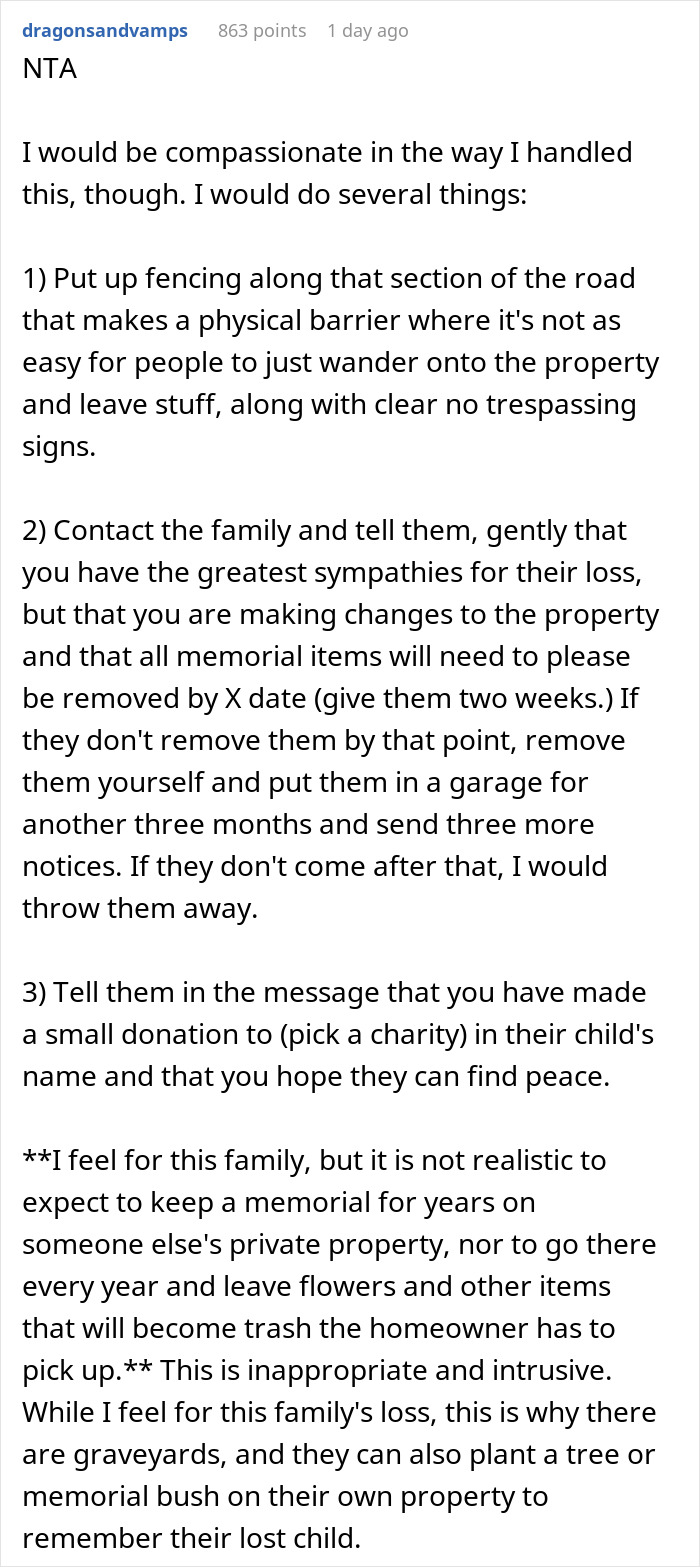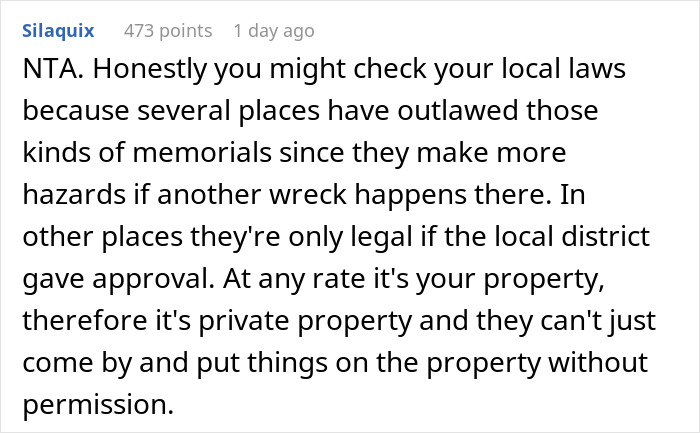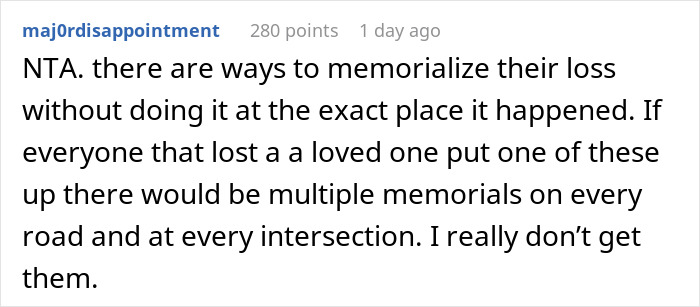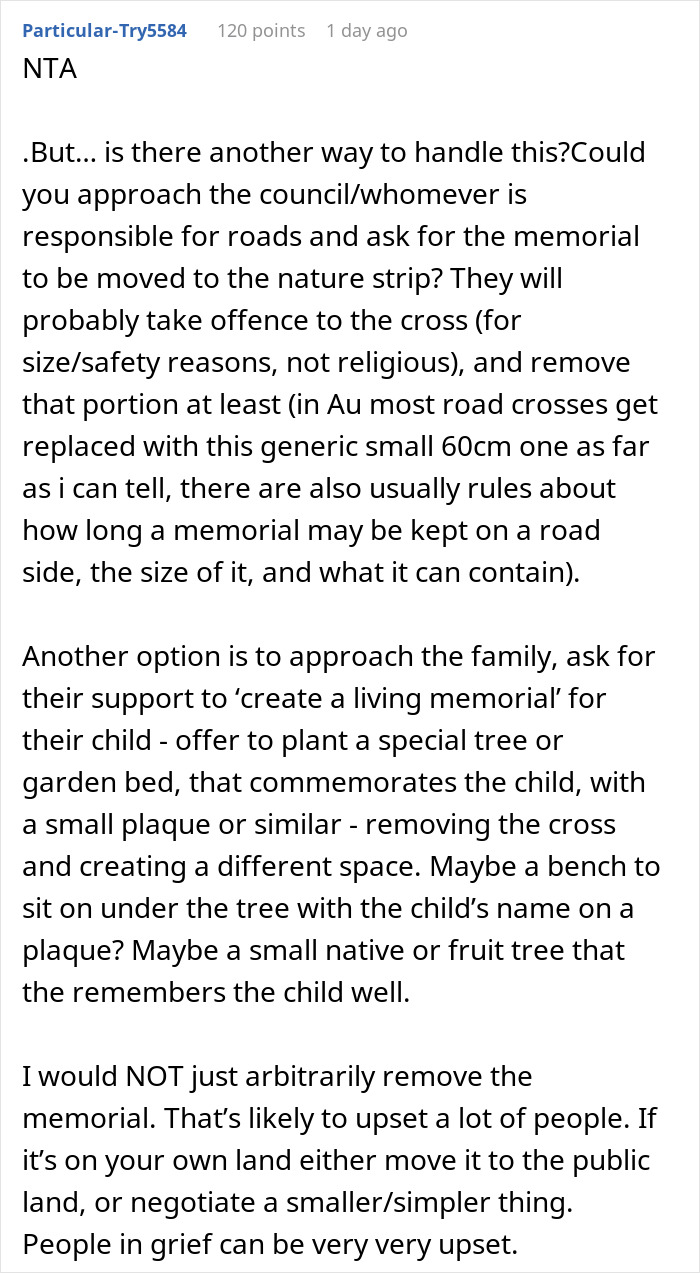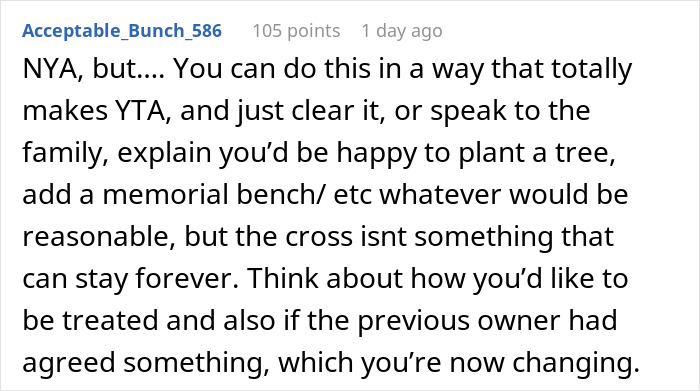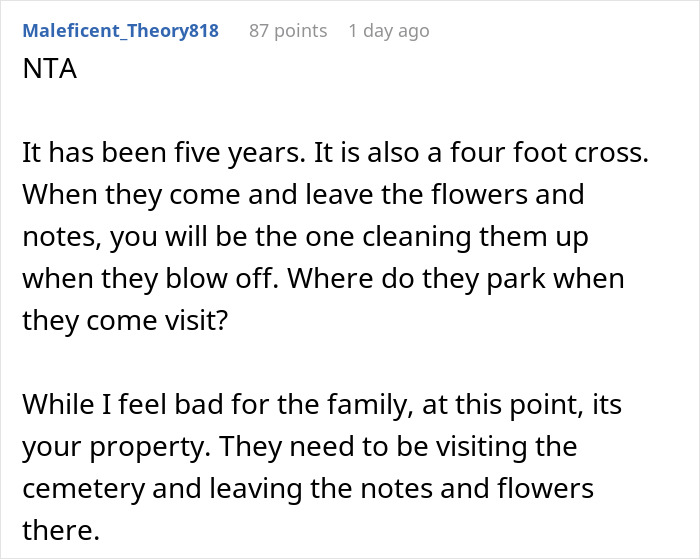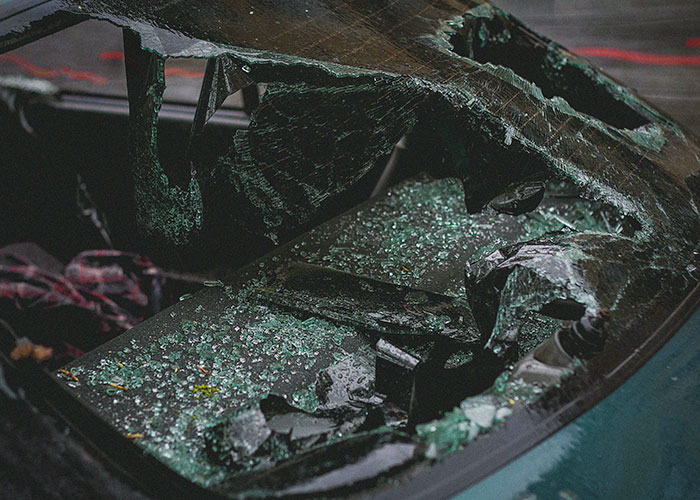Whether it comes as a great shock or not, losing a family member is always painful. So many of us choose to memorialize loved ones with something permanent to remember them by. This might be a place to visit or an item that we can hold and speak to; the important thing is keeping our relative’s memory alive.
But one man recently bought a home that has a memorial on his property, and now he’s wondering if it would be inappropriate to ask the family to relocate it. Below, you’ll find the full story that he recently shared on Reddit, as well as some of the advice readers gave him.
Roadside memorials are commonly used to remember those who lost their lives in car accidents
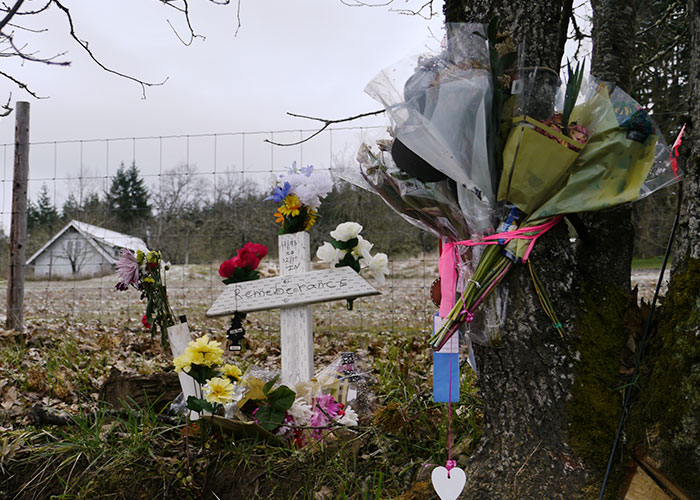
Image credits: Rick Obst / flickr (not the actual photo)
But this man is wondering if it would be possible to relocate a memorial that came with his recently purchased home
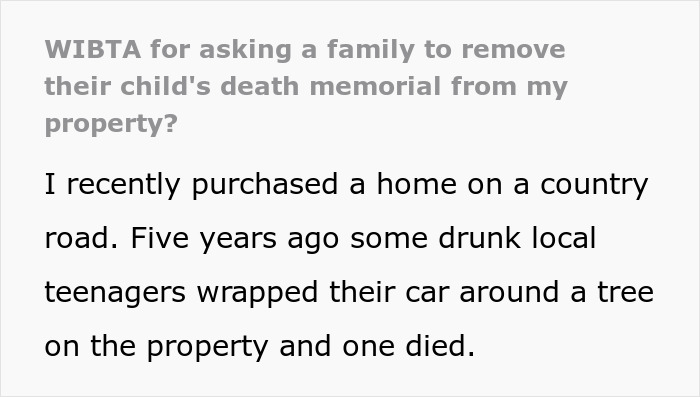



Image credits: Aleksandar Andreev / pexels (not the actual photo)
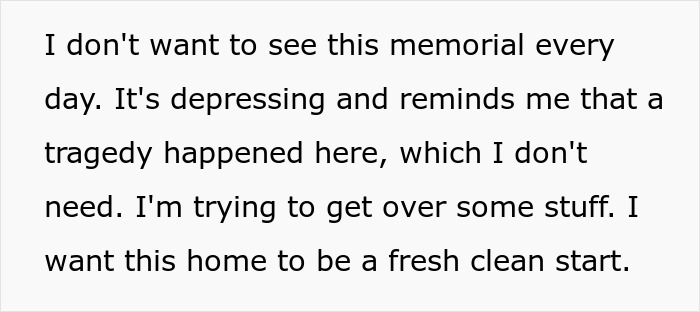

Image credits: merk35802
“Victims of road death often feel as though the world moves on without them, and permanent roadside memorials can help alleviate this feeling of being forgotten”
Image credits: Artyom Kulakov / pexels (not the actual photo)
Nothing compares to the pain of losing a loved one, especially a child who should just be getting started in life. But sadly, car accidents claim the lives of 1.19 million people a year, the World Health Organization reports. Speeding, driving under the influence, driving distracted, failing to properly use seatbelts, unsafe road infrastructure and unsafe vehicles can all increase a person’s risk of being injured or killed from a car accident.
But no matter how common fatal traffic accidents are, they will never be any less painful for those who lose loved ones. So to cope with the grief, many people choose to create roadside memorials to honor their lost family members. To learn more about the significance of these memorials, we reached out to Seth Ludewick, Member and Supporter Administrator at RoadPeace.
Seth shared with Bored Panda that, “Everyone grieves differently, some may never want to see the site where their loved one died, and for others the site becomes an important place of remembrance. Victims of road death often feel as though the world moves on without them, and permanent roadside memorials can help alleviate this feeling of being forgotten.”
“[These memorials] can also serve as a reminder to motorists to drive safely and responsibly,” Seth explained. “RoadPeace believes victims have a right to a permanent roadside memorial, as bereaved families deserve to be treated with compassion and respect. In this case, we would encourage the landowner to consider the emotional significance of this site for the family, and try and find a compromise that respects their grieving process.”
The tradition of displaying roadside memorials has been around for hundreds of years
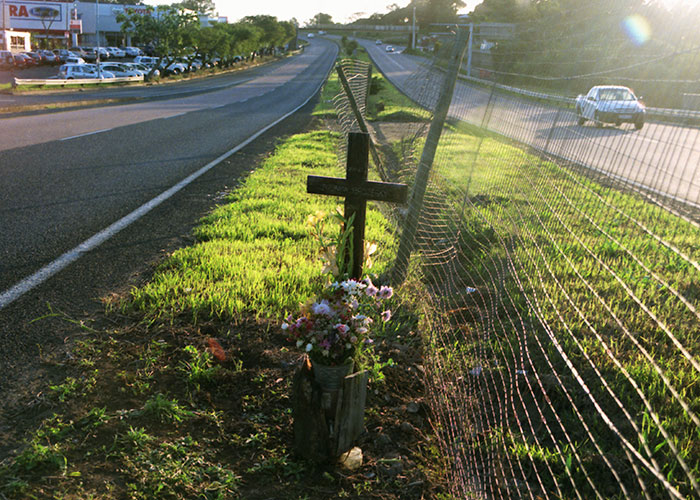
Image credits: Chris Bloom / flickr (not the actual photo)
One study reported that placing a memorial near an intersection reduced the rate of running red lights by nearly 29%. And when it comes to drivers’ thoughts when they see roadside memorials, 43% wonder how the accident occurred, 35% consider how dangerous driving is, 33% think about the fact that someone died, another third say they feel sadness, and a quarter of drivers consider the loved ones of the deceased.
According to Everlasting Memories, the tradition of placing memorials on the road where accidents occurred started over 200 years ago, with tiny white crosses, or “decansos,” popping up as a way to honor those who died. Today, however, families often place crosses, photos, candles, flowers, flags and more to commemorate their loved ones.
And while these memorials are generally allowed, it’s important to keep in mind state laws while creating a place to honor someone you’ve lost. Depending on where you live, there may be limitations on the size of memorial you can display, and you might even need a permit or registration to put up a memorial.
There could be a limited amount of time that you are allowed to display a memorial, and there might be environmental regulations to consider to ensure the memorial doesn’t create litter. Also, keep in mind the safety of other drivers or pedestrians who will be passing through, as well as how much maintenance the memorial will require. Everlasting Memories notes that laws exist surrounding these memorials to ensure that no one else is put at risk, drivers aren’t distracted and public and private property laws are respected.
It’s important to consider local laws and regulations before creating roadside memorials
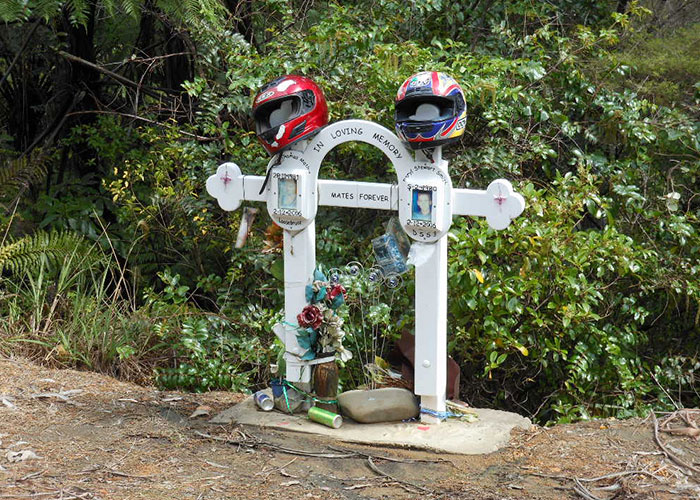
Image credits: Michael Coghlan / flickr (not the actual photo)
Some states, such as New Jersey, are even considering alternatives to roadside memorials to honor those who have lost their lives in car accidents. To prevent memorials from taking over public property for personal use, Assemblyman Bob Andrzejczak suggests that the state create standardized signs that families can use, rather than makeshift memorials.
“The sign would have all the information that the family would like but it’s a more permanent structure. That way, you’re not having families stopping on the side of the road where it is very dangerous and continuing to put out things for their loved ones,” Andrzejczak told WHYY. “Not only that. For motorists that are driving on the road, it’s going to be an additional sign for them to say, ‘Hey, you know what, this is probably a dangerous area, there’s a memorial on the side of the road.’”
While it’s completely understandable for grieving loved ones to want a special place to go to to honor relatives that they’ve lost, the situation can become sticky when memorials fall on private property. We would love to hear your thoughts on this situation down below, pandas. Do you think this man is justified in wanting to relocate the memorial that’s now on his land? Feel free to share, and then if you’re interested in reading another Bored Panda article discussing memorials, look no further than right here.
Later, the homeowner provided more background information
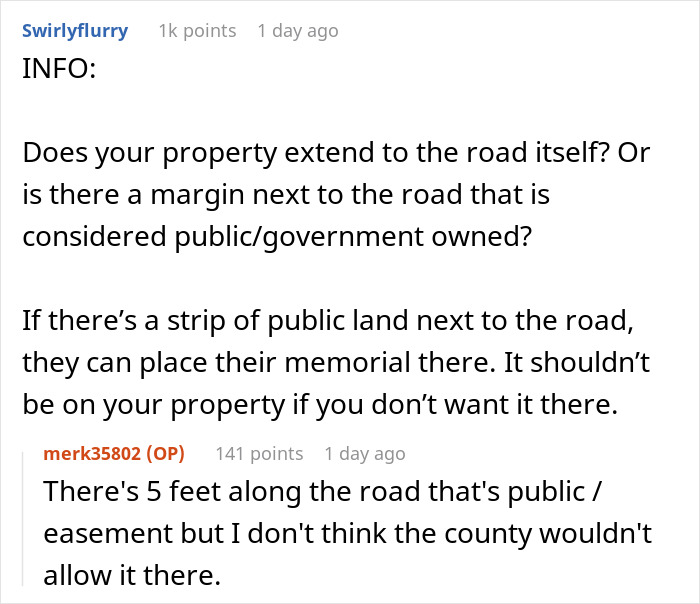
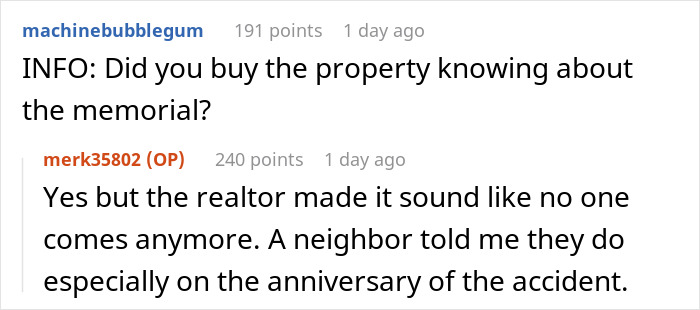
Readers assured him that it was a reasonable request and shared suggestions for how to go about approaching the family


